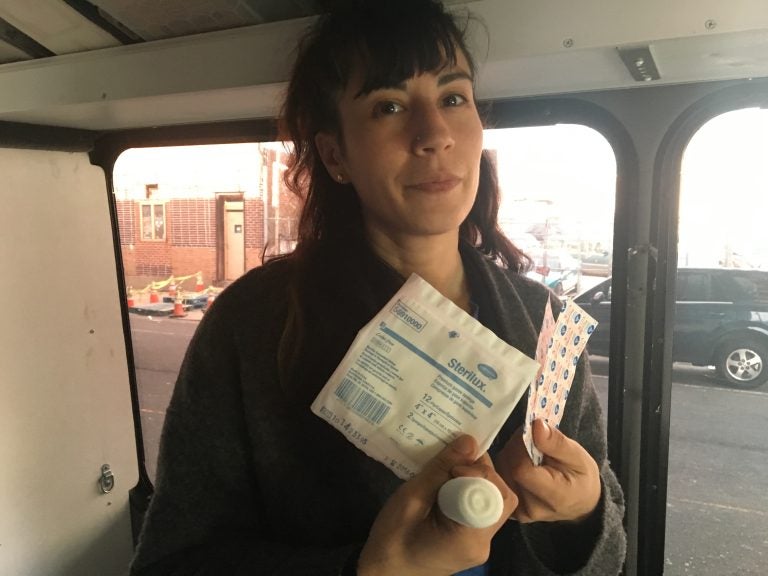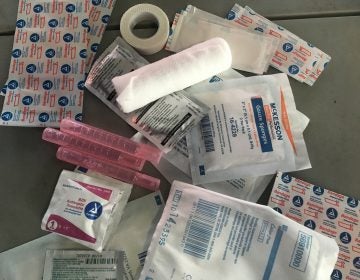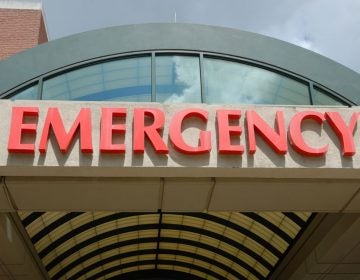Philly mobile clinic expands to treat infections related to injection drug use
Sheila Dhand is a wound care nurse with Prevention Point Philadelphia’s mobile unit. She cares for skin and soft tissue infections often resulting from injecting drugs.

Sheila Dhand, a wound care nurse, treats lots of people who use drugs via mobile unit. (Elana Gordon / WHYY)
Sheila Dhand treats a lot of people who might not step foot in a health clinic or hospital — until it becomes an emergency.
“People don’t want to show just anybody their wound,” Dhand said. “A lot of time when talking about wounds, we’re talking about drug use. And those things are so taboo.”
A wound care nurse with Prevention Point Philadelphia’s mobile unit, Dhand cares for skin and soft-tissue infections that often result from injecting drugs. As many worry such wounds are on the rise as the entire drug crisis escalates, the mobile unit is in the process of expanding through a $62,000 grant from Philadelphia’s Office of Addiction Services. This spring, it will be traveling to more places, more often, in hopes of reaching more people who might not otherwise get care.
This type of service is needed, she said, because wounds related to injection drug use are often hidden under long sleeves and buried in shame. Specifically, they may be caused by bacteria getting into the skin, tissue and even the blood. The repeated wear and tear of needles also cause wounding.
Some simple measures, such as using clean supplies when injecting drugs, may help reduce the infection risks — along with the spread of HIV and hepatitis C. Untreated, such infections can become really serious.
“They can lead to amputations, they can lead to death,” Dhand said. “They can lead to long-term, really expensive hospitalizations. They can lead to a valve replacement in the heart. So these are serious complications that cause pain and suffering and are really expensive.”
A 2015 study of a public hospital in Miami found that infections related to injection drug use cost the county about $11 million in a year. That, in part, prompted officials to authorize the opening of a needle exchange, with proponents stressing that the availability of clean needles and other supplies can help reduce the infection risks for those who continue to inject drugs.
Philadelphia, meanwhile, has been reviewing whether opening a safe injection site — a place where people could inject illicit drugs under the supervision of a health worker — might also help reduce hospitalizations for skin and soft tissue infections.
While the debate over that idea continues, Prevention Point’s wound care van makes its rounds, bringing its exam table and bins filled with bandages, ointments, sterile water and alcohol wipes where they’re needed.
For Dhand, the act of treating urgent wounds goes beyond helping the literal infection heal. It represents a link to other services.
“That’s a really important part of it,” she said. “It’s not like, wound care [and then] goodbye. It’s, what else is going on?”
WHYY is your source for fact-based, in-depth journalism and information. As a nonprofit organization, we rely on financial support from readers like you. Please give today.





